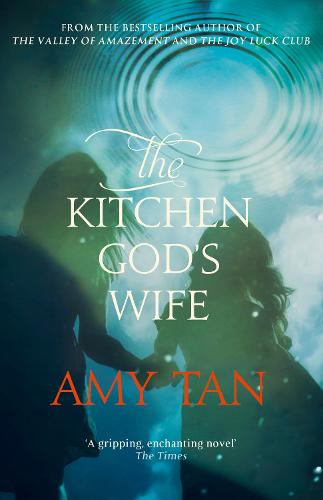The reviewer finds Amy Tan's second novel, 'The Kitchen God's Wife,' a harrowing and compelling tale that unfolds with a Tolstoyan tide of events and details. Despite a slow start and some initial disappointment with the protagonist's stereotypical portrayal, the novel ultimately succeeds in its ambitious exploration of fate, individual choice, and societal victimization, though the reviewer critiques the forced parallel between the protagonist's suffering and her daughter's illness.
Amy Tan's 'The Kitchen God's Wife' is a more ambitious and satisfying effort compared to her debut, 'The Joy Luck Club.' The novel follows the life of Winnie Louie, a widowed matriarch in San Francisco, as she recounts her harrowing past to her daughter, Pearl. The reviewer initially finds Winnie's character stereotypical and the narrative device of Winnie telling her story to Pearl somewhat irritating. However, the depth and complexity of Winnie's experiences, from her abandonment by her mother to her brutal marriage and eventual immigration to the United States, make the story compelling. The reviewer appreciates Tan's exploration of themes like fate, individual choice, and societal victimization, but critiques the forced parallel between Winnie's suffering and Pearl's illness, which diminishes the impact of Pearl's real despair. Overall, the reviewer recommends immersing oneself in the world Tan creates, as the story itself is what truly matters.
Quick quotes
It is unfortunate that we first encounter her through the eyes of her 40-year-old daughter, Pearl, because Winnie seems disappointingly stereotypical.
Her mother's disappearance is the first of many losses, humiliations and sorrows so great that it is only Weiwei's exasperated humor and her tone of harsh certainty -- a kind of bossiness -- that maintains credulity.
The major question posed by the investigation of the life of Jiang Weili/Weiwei/Winnie is how much our circumstance is fated and how much is shaped by individual choice, or if, in fact, fate and individual choice are even entirely separate things.
